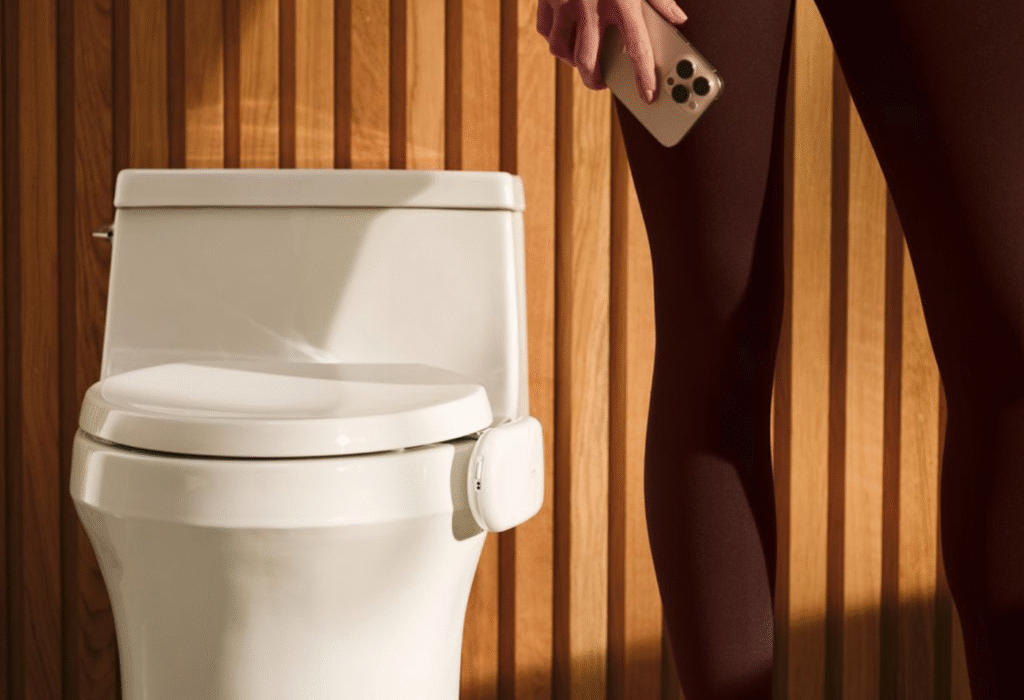Kohler’s Dekoda: Is a $600 Toilet Camera the Future of Health Monitoring?
Think you’ve seen it all? Prepare to be surprised. Kohler, the company synonymous with toilets and bathroom fixtures, has just unveiled its first product under its new Kohler Health division: the Dekoda, a $599 camera designed to analyze your… well, you know. This isn’t some futuristic fantasy; it’s a real product aiming to revolutionize how we monitor our health. But is it a necessary innovation, or just an expensive gimmick? Let’s dive in.
Decoding Dekoda: What Does This Toilet Camera Actually Do?
The Dekoda isn’t just a simple camera perched precariously in your toilet bowl. It’s equipped with sensors and “validated machine learning algorithms” that analyze liquid and solid waste. The goal? To provide insights into your hydration levels, gut health, and even detect the presence of blood. This data is then transmitted to the Kohler Health iPhone app (Android support is reportedly in the works), offering a snapshot of your internal well-being.
Think of it as a non-invasive, daily health check-up, conducted without leaving the comfort (or discomfort) of your bathroom. The information gathered could potentially flag early signs of dehydration, digestive issues, or more serious conditions requiring medical attention. While not a substitute for a doctor’s visit, the Dekoda aims to provide valuable baseline data to help you be more proactive about your health.
The system also includes a magnetic charging pad and a wall-mounted remote. Intriguingly, the remote can be configured with Bluetooth fingerprint authorization. This feature addresses a very real concern: privacy. Nobody wants unwanted insights into their guests’ bathroom habits. The fingerprint lock ensures only authorized users can access the Dekoda’s data.
The Potential Benefits: Health Monitoring Reimagined?
The potential benefits of a device like the Dekoda are significant. Early detection is key to managing many health conditions, and the Dekoda offers a convenient and passive way to monitor critical biomarkers. Imagine detecting signs of dehydration before experiencing symptoms, or identifying potential gut health issues before they escalate into something more serious.
For individuals with chronic conditions, such as inflammatory bowel disease (IBD) or those at risk for kidney problems, the Dekoda could provide valuable data to share with their healthcare providers. This real-time, objective information could help doctors make more informed decisions about treatment plans and medication adjustments.
Moreover, the Dekoda could be a powerful tool for promoting preventative health. By tracking hydration levels and gut health, users can identify lifestyle changes that could improve their overall well-being. Perhaps the data reveals a need to drink more water or adjust their diet to promote a healthier gut microbiome.
The Big Question: Is It Worth $600? And Is It Creepy?
The elephant in the bathroom, of course, is the price tag. At $599, the Dekoda is a significant investment. Is the potential health data worth the cost? That depends entirely on individual circumstances and priorities. For someone with specific health concerns or a strong interest in preventative health, the Dekoda might be a worthwhile investment. However, for the average person, the price point may be prohibitive.
Beyond the cost, there’s also the “creep factor” to consider. The idea of a camera in your toilet analyzing your waste is undoubtedly a bit unsettling for some. Concerns about data privacy and security are legitimate. Kohler will need to assure consumers that the data collected by the Dekoda is securely stored and protected from unauthorized access. The fingerprint authentication feature is a step in the right direction, but ongoing vigilance and transparency will be crucial to building trust.
The question of whether or not it is creepy will likely come down to individual perceptions. Some will welcome the data and insights, while others will find the concept inherently invasive. Kohler has a challenge on its hands to market the Dekoda in a way that emphasizes the health benefits while minimizing the “ick” factor.
The Future of Health Tech: Where Does the Dekoda Fit?
The Dekoda represents a bold step into the future of health technology. It’s a prime example of how everyday objects can be transformed into sophisticated health monitoring tools. As technology advances, we can expect to see more and more devices integrated into our homes that track various aspects of our health.
Whether the Dekoda succeeds or fails remains to be seen. However, it has undoubtedly sparked a conversation about the potential of passive health monitoring and the role of technology in promoting preventative care. It’s a sign of things to come, a glimpse into a future where our toilets might just be smarter than we think. The success of the Dekoda could pave the way for other innovative health-tech products, pushing the boundaries of what’s possible in the pursuit of better health. The toilet camera may be a novelty now, but it could become a standard feature of the smart home in the years ahead.
